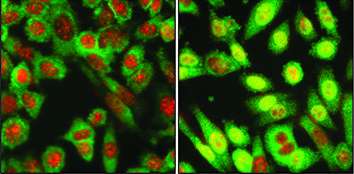How to buy baclofen coupons without prescription

Metastasis, the spread of tumor cells to distant sites, is the major cause of death for people impacted by cancer. With no therapeutic cure available, it is clear that new treatments are needed urgently.
In a study published today in the international journal Cancer Research, a journal of the American Association for Cancer Research, investigators at the Olivia Newton-JohnCancer Research Institute (the La Trobe University School of Cancer Medicine) have shown that when the protein bone morphogenetic protein-4 (BMP4) is switched off, breast cancer can become more aggressive. BMP4 is active during fetal development and is maintained during adulthood in some healthy organs, including the breast.
In this study, led by investigators Dr. Bedrich Eckhardt (a Susan G Komen Postdoctoral Fellow) and Prof Robin Anderson (Head of the Translational Breast Cancer Program), it was hypothesized that restoring BMP4 activity would block the ability of breast tumors to metastasize.
“At its core, this study has demonstrated that high levels of the BMP4 protein in breast cancer patients is associated with better outcome, linked to a reduction in metastatic breast cancer,” said Prof Anderson. “This is an exciting finding as there has been no reduction in the rates of mortality for people with metastatic breast cancer for over 20 years.”
This translational research study revealed that levels of the BMP4 protein are often reduced in late stage breast cancer. But when BMP4 levels were restored in preclinical models of metastatic breast cancer, it could block distant metastasis in multiple organs including the lung and bone. These findings have been achieved through collaboration with researchers at Peter MacCallum Cancer Centre, Fiona Stanley Hospital (University of Western Australia) and MD Anderson Cancer Center (University of Texas, U.S.).
“As part of the study, we were able to demonstrate how BMP4 activates cellular pathways to block the ability of tumor cells to metastasize,” Dr. Eckhardt explains, “and importantly show that key proteins induced by BMP4 are critical to block metastasis by reducing the number of circulating tumor cells within the blood.”
While the ultimate aim is to bring a new therapy into the clinic through clinical trials, the next phase of research will focus on finding a compound that mimics the anti-metastatic actions of BMP4.
Source: Read Full Article
